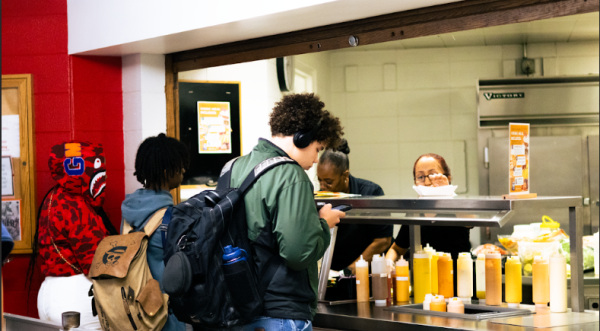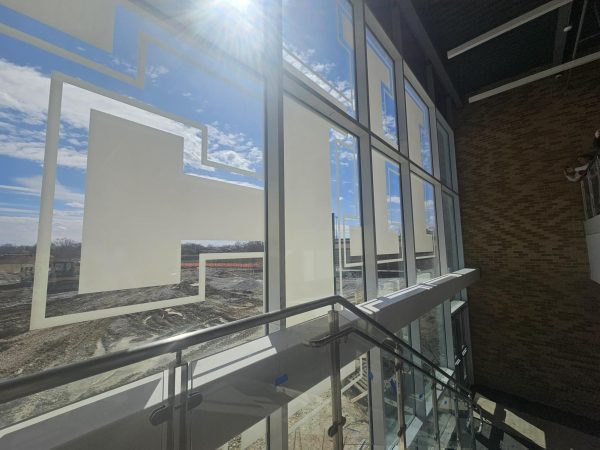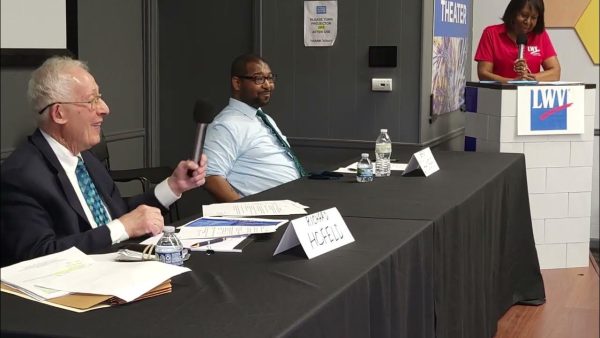Is an HBCU right for you?
Nearly 15 percent of H-F students attend Historic Black Colleges and Universities. Many students consult with their college counselors about if they should attend a HBCU.
“Not only black students are good candidates for HBCU’s, Latinos and whites could benefit from the experience. Students who are culturally aware of not only themselves, but interested in other cultures are good candidates for an HBCU,” College Counselor Kevin Coy said.
Initially, HBCU’s were founded to offer African-American students a higher education during a time when most schools in America excluded minorities from attending predominantly white colleges and universities.
There are 107 HBCU’s across America. HBCU’s primarily serve African-American students; however, that doesn’t mean students will have a limited cultural experience.
People from all over the world come to the United States to attend HBCU’s, which results in diverse student bodies.
Alexis Sanders, an H-F alumna who now attends Hampton University, said HBCU’s encompass many “unique” students.
“I love how diverse Hampton University is. I’m in a community where everyone is friendly, takes care of each other and is invested in their academic career,” Alexis Sanders said.
Coy said students who attend HBCU’s may have a “culture shock” after graduation.
“That’s not how the real world is, being around a lot of people of the same race, but there is so much history and tradition wrapped up in a familial aspect at HBCU’s,” he said.
Many people have a pre-connotation that HBCU’s don’t have a strong curriculum.
However, pristine academics are heavily important at all HBCU’s.
Eric Hagerman, an H-F alumnus who now attends Howard University said he “greatly values” HBCU’s education.
“HBCU’s in general do a good job of incorporating the Black experience into its curriculum, and that’s something that I wanted to gain from my college education,” he said.
Coy said HBCU’s are known for not having “the best financial support.”
“The biggest setback for students deciding whether to attend a HBCU is the funding. HBCU’s are known for not giving a ton of money, however, we have H-F students that receive pretty substantial financial aid packages from HBCU’s,” he said.
Hagerman received a “full- tuition” scholarship to Howard University.
“The schools I narrowed it down to, Columbia University and Howard University, both fit that criteria. However, Howard, being an HBCU, offered a different experience from Columbia, and I fell in love with it when I first visited,” Hagerman said.
HBCU’s have a wide variety of scholarships, especially for white and Hispanic students.
Many alumni believe the HBCU experience is a college environment like no other.
“I like being in an HBCU environment because I feel like there’s really a familial connection with everyone I meet here. Regardless of your race, background, hometown, or identity, everyone here seems to treat you like family,” Hagerman said.
Sanders decided to attend a HBCU because of the “racial tension” going on in America.
“This past election was really the last straw for me, with all the racial tension going on. I knew I was going to go to a farther away school and I needed a family to help me adjust to the college transition. With that being said, I wanted to find a school with a nurturing and communal feel and HBCU’s fit that criteria,” Sanders said.
Coy said every individual student is different, but “everyone should consider an HBCU.”
“No matter the color all students should consider attending an HBCU. There are many students of color looking at PWIs so why not flip the script and white students look at HBCU’s,” said Coy.





